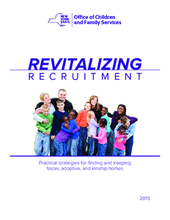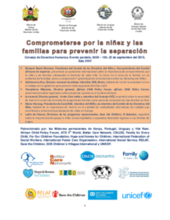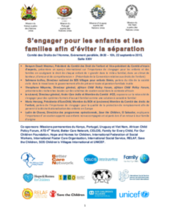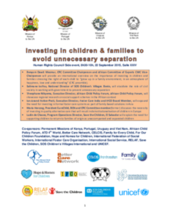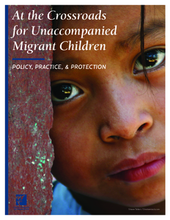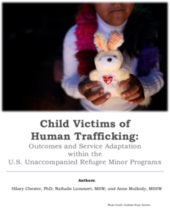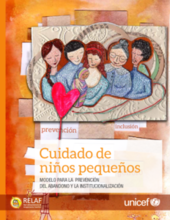This page contains documents and other resources related to children's care in the Americas. Browse resources by region, country, or category.
Displaying 421 - 430 of 566
This study was carried out in rural Arkansas to examine the feasibility and usefulness of a universal screening tool--the Family Map Inventory (FMI)--to assess family strengths and needs in a home visiting program.
This study reports on the findings from a randomized control trial of a 10-week home visiting program, Promoting First Relationships® (Kelly, Sandoval, Zuckerman, & Buehlman, 2008), for a subsample of 43 reunified birth parents of toddlers that were part of the larger trial.
This guide, published by the New York State Office of Children and Family Services, provides a summary of promising practices currently used in recruitment and retention of foster/adoptive families.
Este evento paralelo del Consejo de Derechos Humanos incluyó presentaciones en separación familiar en los contextos africanos, asiáticos, europeos, y latinoamericanos.
This Human Rights Council Side event included presentations on family separation in the African, Asian, European, and Latin American contexts.
This Human Rights Council Side event included presentations on family separation in the African, Asian, European, and Latin American contexts.
This report presents policy and practice recommendations for the care and protection of unaccompanied migrant children in the United States, based on the wisdom and learning shared by participants in three Roundtable meetings convened by Lutheran Immigration and Refugee Service (LIRS).
This paper presents the features of the Unaccompanied Refugee Minor (URM) program model that most effectively meets the specialized needs of foreign-born child victims of human trafficking.
This video reveals the adverse conditions in the many unregistered orphanages in Haiti


